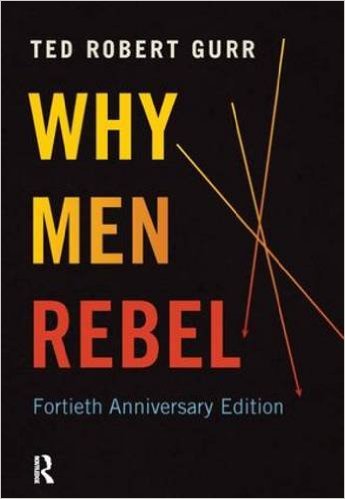 The New York Times published a very interesting article addressing the inability of government-sponsored scholars and researchers to provide policymakers with an analytical basis for identifying potential terrorists. For anyone who has worked with U.S. government patrons on basic research, much of this will sound familiar.
The New York Times published a very interesting article addressing the inability of government-sponsored scholars and researchers to provide policymakers with an analytical basis for identifying potential terrorists. For anyone who has worked with U.S. government patrons on basic research, much of this will sound familiar.
“After all this funding and this flurry of publications, with each new terrorist incident we realize that we are no closer to answering our original question about what leads people to turn to political violence,” Marc Sageman, a psychologist and a longtime government consultant, wrote in the journal Terrorism and Political Violence in 2014. “The same worn-out questions are raised over and over again, and we still have no compelling answers.”
Ample government resourcing and plenty of research attention appears to yield little in advanced knowledge and insight. Why is this? For some, the way the government responds to research findings is the problem.
When researchers do come up with possible answers, the government often disregards them. Not long after the attacks of Sept. 11, 2001, for instance, Alan B. Krueger, the Princeton economist, tested the widespread assumption that poverty was a key factor in the making of a terrorist. Mr. Krueger’s analysis of economic figures, polls, and data on suicide bombers and hate groups found no link between economic distress and terrorism.
More than a decade later, law enforcement officials and government-funded community groups still regard money problems as an indicator of radicalization.
There is also the demand for simple, definitive answers to immediately pressing questions (also known as The Church of What’s Happening Now).
Researchers, too, say they have been frustrated by both the Bush and Obama administrations because of what they say is a preoccupation with research that can be distilled into simple checklists… “They want to be able to do things right now,” said Clark R. McCauley Jr., a professor of psychology at Bryn Mawr College who has conducted government-funded terrorism research for years. “Anybody who offers them something right now, like to go around with a checklist — right now — is going to have their attention.
“It’s demand driven,” he continued. “The people with guns and badges are so eager to have something. The fact that they could actually do harm? This doesn’t deter them.”
There is also the problem of research that leads to conclusions that are at odds with the prevailing political sentiment or run contrary to institutional interests.
Mr. McCauley said many of his colleagues and peers conducted smart research and drew narrow conclusions. The problem, he said, is that studies get the most attention when they suggest warning signs. Research linking terrorism to American policies, meanwhile, is ignored.
However, the more honest researchers also admit that their inability to develop effective modes of inquiry into what are certainly complicated problems plays a role as well.
In 2005, Jeff Victoroff, a University of Southern California psychologist, concluded that the leading terrorism research was mostly just political theory and anecdotes. “A lack of systematic scholarly investigation has left policy makers to design counterterrorism strategies without the benefit of facts,” he wrote in The Journal of Conflict Resolution.
This state of affairs would be problematic enough considering it has been a decade-and-a-half since the events of 11 September 2001 made understanding political violence a national imperative. But it is even more perplexing given that the U.S. government began sponsoring basic research on this topic in the 1950s and 60s. The pioneering work of scholars Ted Gurr and Ivo and Rosalind Feierabend started with U.S. government funding. Gurr published his seminal work Why Men Rebel in 1970. Nearly a half century later, why are we still asking the same questions?
